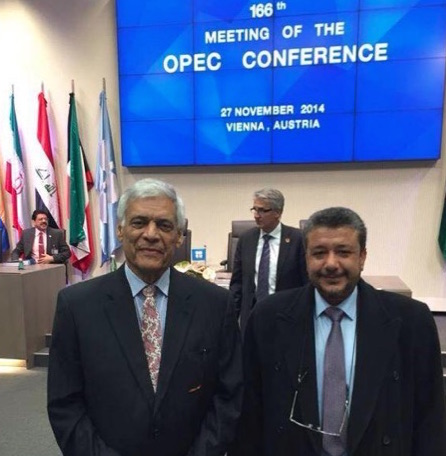
The attendance of Mabrook Buseif at the Opec meeting in Vienna on 27 November as the newly appointed chairman of National Oil Corporation (NOC) was a small victory for the Tobruk-based government of Abdullah Al-Thinni against the rival Tripoli-based administration of Omar Hassi. It demonstrated the practical value of international recognition to the House of Representatives and its institutions.
But there is no evidence that the new chairman based in Tobruk will be able to exert any meaningful control over NOC as an institution, while it is possible that this decision will undermine its supposed autonomy from either side, which has enabled it, and the Central Bank of Libya, to operate until now without clear lines of responsibility.
Soon after Thinni’s deputy PM Abdulrahman Al-Taher introduced Buseif to journalists in Vienna as the new NOC chief, a defiant statement appeared on the corporation’s website — run from its Tripoli headquarters — saying that NOC’s “main office in Tripoli is still officially responsible for follow-up and adoption of all oil and gas sector activity in all of Libya including the operation of fields and production.”
It added that NOC’s chairman, board members, managers and staff were “authorised to perform their duties as normal without any change in the legal status of their responsibilities”.
It is therefore likely that Mustafa Sanallah, the NOC chairman theoretically dismissed following Buseif’s appointment, may continue in post despite the fact that neither he nor the Tripoli-based minister for oil and gas were apparently granted invitations or visas entitling them to attend the meeting in Vienna.
Buseif’s appointment was being mooted in the international oil markets for at least one week before the announcement in Vienna. According to one source, the Tobruk government intends to establish a new NOC headquarters in Ras Lanuf, but the feasibility of such a move has yet to be proven.
be proven. [/restrict]







